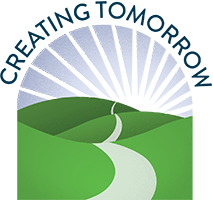Collaborative - Independent Living
Equals
My Independence (Eq)
Shopping in the community.
Using the minibus, the learners visit a large supermarket to buy snacks and drinks for the week. The learners prepare a shopping list, collect purses from the office and go to ASDA. They collect a trolley and move through the shop, taking it in turns to collect the items on the list. Once all the items have been collected, they take them to the checkout and each learner will buy an item using money from their purse.
Travel Training (Road Safety)
Crossing the road safely with assistance or independently. Learners are taught where it is safe to cross and to stop and wait at the kerb. They check whether it is safe to cross and then walk looking both ways as they cross the road.
The World Around Me:
- Seasons - The essence of this topic is to clearly demonstrate the passing of time and the repetition of time, as well as explore the connections for learners, in terms of what time of the year might mean for them. Taking September as a start, we will go through summer, Autumn, Winter, Spring and back to Summer again.
- Recycling - This topic looks at investigating rubbish in school and at home, looking at how to recycle and what can be recycled within a school and at home.
- Photography - The liberating consequences of learning how to use a camera properly and successfully. This may be the closest that many learners with SLD will get to being truly literate, for instead of using written words to explain, narrate, inform, educate, elucidate, they can and should be using pictures, both moving and still. The mastery of digital photography could release massive potential for improving the communicative abilities of all learners with SLD, especially as they so often struggle to make themselves understood and play a truly active part in social interactions;
- Food - Throughout this topic, as far as possible, actual items, practical activities and visits should form the backbone of any work; that is, the learning should be contextualised and concrete, done in real time with real food. Photos and videos of the pupils taking part in activities and visits should be standard procedure so that time can be spent in the classroom reliving (and therefore repeating) the work done ‘in the field’.
Wren Offer
| Swimming | Learners get to experience and become more confident in and around water. They become more confident about submerging in water or putting their face into the water. Other learners might develop their swimming stroke / technique and be able to float in the water. Practising dressing and undressing. |
| Snack | Learners make, prepare and clear up their own snack. They have to get the resources out to make bagels / toast and then toast these before putting on butter / jam / marmite etc. Some learners who are proficient with this will then be faced with a dilemma that needs solving. e.g. there aren’t any spoons or milk, and they have to solve the problem. |
| Lunch | Sharing a meal together and helping to organise and clear away afterwards. Learners need to collect lunches, make decisions about what they will have with their lunches. Once eaten, they need to clear away any rubbish, cups, plates or cutlery. The tables need wiping and chairs stacked up. |
| Personal Care | A number of learners are independent with their personal care, but they do need to indicate they are going to the toilet by taking their toilet card and putting it on the door of the toilet they are using. Other learners who need personal care are encouraged to follow individualised steps to use the toilet and carry out personal hygiene routines. |
| Food Tech – Health living | Preparing healthy foods / snacks. Learners learn about different food types and what is healthy / unhealthy. They then learn how to prepare and put together healthy foods / snacks. They have the opportunity to try different foods and take home finished dishes. |
ASDAN
- Travel in the community
Students visit the community through a variety of different experiences. Students practice travel training by bus journeys and road crossing. Visits to supermarkets, high street shops, parks and outdoor environments. Other opportunities include fishing and sporting events.
.





